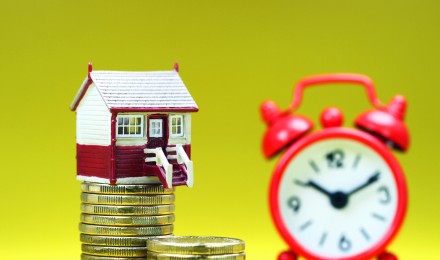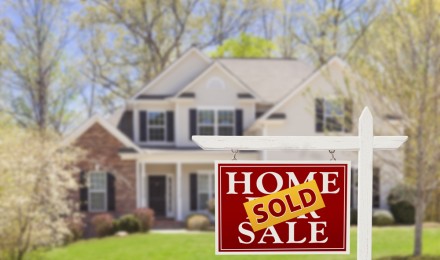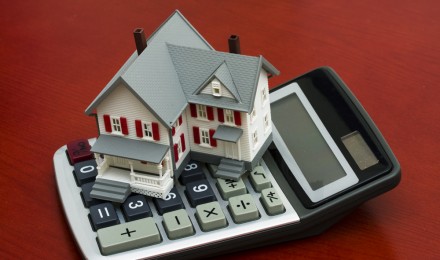A rate lock is a promise from a lender to offer you a loan at a specific interest rate and a specific number of points within a given time frame. Rate locks are used in mortgage loan transactions because there may be a gap in time between the period when you are comparing loan rates and applying for loans and the time when you close on your house and actually borrow the money. A rate lock ensures that you will receive the loan terms that were promised to you by the lender at the time when you lock the rate in.
Understanding Rate Locks
Most home buyers go through several stages in the process of applying for a mortgage and looking for a home. Getting pre-approved before you start the home buying process is a wise choice to ensure you know how much home you can afford, and your pre-approval will be based on an interest rate and points that the lender estimates will be used for the final loan. Typically, you then have to find a home and apply for an actual mortgage loan, using that home’s price as the basis of the amount you want to borrow. After you’ve been approved for the mortgage loan, the home must pass all of its inspections and appraisals and you must wait until the designated closing date when the money is actually lent to you and the ownership of the home is transferred.
The period of time between the pre-approval and the actual closing date may span weeks or even months. As such, interest rates may change during this time period. A rate lock says that even when interest rates change, from the point when your rate is locked in until the expiration date of your rate lock, your interest rate and loan term will not change.
When Can You Get a Rate Lock?
The time period at which you can lock in a rate is going to vary from lender to lender. For instance, some lenders will allow you to lock in the interest rate when the application for the loan is actually submitted. Other lenders allow you to lock in the rate only after you’ve submitted your application and the loan is processing. Still others make you wait until the loan has been formally approved.
Until you are locked in, you can be affected by changes in the market- which can, in some cases, impact your ability to qualify for a mortgage. For instance, if your mortgage payments are based on a low interest rate and interest rates go up, your payments would go up. Since your payments must be below a certain percentage of your income in order to be approved for the loan, what might have been an approval can change to a denial. As such, it is important to understand that locking in is a way to protect you from fluctuations that could make your loan more expensive and that a rate lock is a way to make sure you know what you will actually be paying for your mortgage.
On the other hand, a rate lock generally also prevents you from taking advantage of price decreases as well. If interest rates go down after you are locked into a loan, typically you will not be able to take advantage of those new lower rates since you will already be locked into the rate you agreed upon with your lender.
A Rate Lock vs. a Loan Commitment
While a rate lock can be an important part of getting a mortgage so you can enjoy the certainty of knowing what your interest rate will be and what your loan will cost, a rate lock is not the same thing as a loan commitment. A loan commitment is a commitment or promise by a lender to actually make the loan. You will want to obtain a loan commitment after finding a property to ensure that you can go through with the transaction and that you will have the money you need.
A rate lock is a promise from a lender to offer you a loan at a specific interest rate and a specific number of points within a given time frame. Rate locks are used in mortgage loan transactions because there may be a gap in time between the period when you are comparing loan rates and applying for loans and the time when you close on your house and actually borrow the money. A rate lock ensures that you will receive the loan terms that were promised to you by the lender at the time when you lock the rate in.
Understanding Rate Locks
Most home buyers go through several stages in the process of applying for a mortgage and looking for a home. Getting pre-approved before you start the home buying process is a wise choice to ensure you know how much home you can afford, and your pre-approval will be based on an interest rate and points that the lender estimates will be used for the final loan. Typically, you then have to find a home and apply for an actual mortgage loan, using that home’s price as the basis of the amount you want to borrow. After you’ve been approved for the mortgage loan, the home must pass all of its inspections and appraisals and you must wait until the designated closing date when the money is actually lent to you and the ownership of the home is transferred.
The period of time between the pre-approval and the actual closing date may span weeks or even months. As such, interest rates may change during this time period. A rate lock says that even when interest rates change, from the point when your rate is locked in until the expiration date of your rate lock, your interest rate and loan term will not change.
When Can You Get a Rate Lock?
The time period at which you can lock in a rate is going to vary from lender to lender. For instance, some lenders will allow you to lock in the interest rate when the application for the loan is actually submitted. Other lenders allow you to lock in the rate only after you’ve submitted your application and the loan is processing. Still others make you wait until the loan has been formally approved.
Until you are locked in, you can be affected by changes in the market- which can, in some cases, impact your ability to qualify for a mortgage. For instance, if your mortgage payments are based on a low interest rate and interest rates go up, your payments would go up. Since your payments must be below a certain percentage of your income in order to be approved for the loan, what might have been an approval can change to a denial. As such, it is important to understand that locking in is a way to protect you from fluctuations that could make your loan more expensive and that a rate lock is a way to make sure you know what you will actually be paying for your mortgage.
On the other hand, a rate lock generally also prevents you from taking advantage of price decreases as well. If interest rates go down after you are locked into a loan, typically you will not be able to take advantage of those new lower rates since you will already be locked into the rate you agreed upon with your lender.
A Rate Lock vs. a Loan Commitment
While a rate lock can be an important part of getting a mortgage so you can enjoy the certainty of knowing what your interest rate will be and what your loan will cost, a rate lock is not the same thing as a loan commitment. A loan commitment is a commitment or promise by a lender to actually make the loan. You will want to obtain a loan commitment after finding a property to ensure that you can go through with the transaction and that you will have the money you need.







